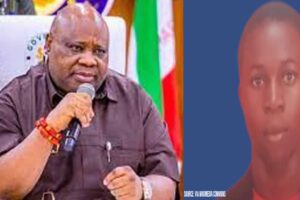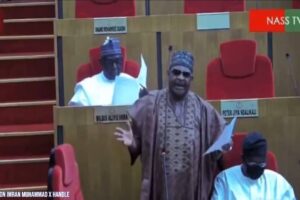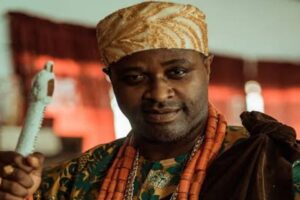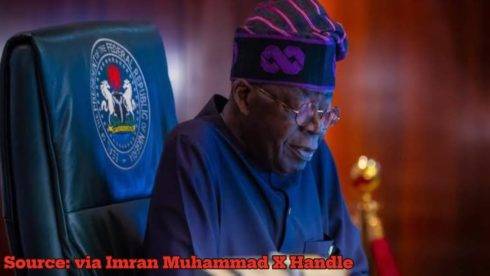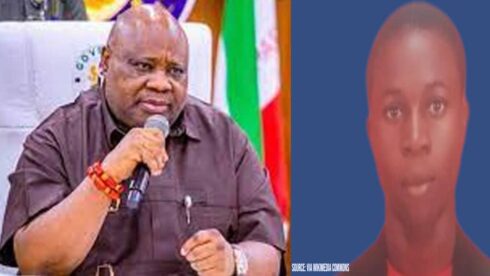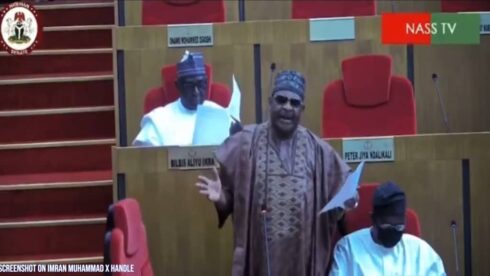The Supreme Court of Nigeria has decisively rejected a lawsuit seeking the removal of President Bola Tinubu, delivering a resounding verdict that not only dismissed the case but also strongly rebuked the plaintiff for what it termed a frivolous and vexatious legal action. In a comprehensive judgment delivered by a five-member panel led by Justice Uwani Musa Aba-Aji, the apex court unequivocally declared the suit brought by Albert Owuru, a former presidential candidate of the Hope Democratic Party (HDP), as incompetent and devoid of merit.
The Supreme court’s ruling went beyond merely dismissing the case, imposing significant legal consequences on Owuru. The panel ordered him to pay President Tinubu N5 million as compensation for defending against the unfounded suit and further directed the court’s registry to reject any future frivolous originating summons from the plaintiff. This stern response underscores the judiciary’s commitment to preventing the abuse of legal processes and protecting the integrity of judicial institutions.
Grounds of the Rejected Lawsuit
Owuru’s legal challenge was predicated on multiple controversial claims, including allegations of President Tinubu’s non-qualification to hold office and purported connections to foreign intelligence agencies. Specifically, the plaintiff argued that Tinubu should be disqualified due to a historical forfeiture of $460,000 in the United States related to alleged drug trafficking and claimed that Tinubu was an active CIA agent. He invoked Section 157 of the 1999 Constitution, requesting the Supreme Court to remove Tinubu from the presidency and declare himself as the rightful president.
The Supreme Court comprehensively dismantled these arguments, highlighting the repeated nature of Owuru’s unsuccessful legal challenges. Previously, similar petitions challenging the 2019 presidential election and Tinubu’s subsequent inauguration had been systematically rejected by presidential election tribunals and appellate courts. The Supreme court’s latest judgment not only reinforced these earlier decisions but also criticized Owuru’s conduct, describing his actions as unbecoming of a lawyer with over four decades of experience.
supreme Court Rebuke and Legal Precedent
The Supreme Court’s ruling represents more than just a dismissal of a single legal challenge; it serves as a significant statement on the boundaries of legitimate legal contestation. By lambasting Owuru for “taking the court for a ride” and wasting judicial time with baseless claims, the panel sent a clear message about the serious consequences of filing frivolous lawsuits. This Supreme court judgment follows a previous Court of Appeal decision that had already imposed a substantial fine of N40 million on Owuru, payable to Tinubu, the Independent National Electoral Commission (INEC), and other involved parties.
The Supreme court’s decision underscores the robust nature of Nigeria’s judicial system and its commitment to maintaining the sanctity of democratic processes. By systematically rejecting unfounded challenges to electoral outcomes, the Supreme Court demonstrates its role as a critical guardian of constitutional order and democratic legitimacy. The ruling not only provides clarity on Tinubu’s presidential mandate but also establishes a precedent discouraging similar speculative legal challenges in the future.
Broader Implications for Nigerian Democracy
This judicial pronouncement carries significant implications for Nigeria’s democratic landscape. It reinforces the principle that electoral disputes must be grounded in substantive legal arguments and credible evidence. The Supreme Court’s measured yet decisive response highlights the importance of respecting electoral outcomes while maintaining robust mechanisms for legal scrutiny.
For political actors and potential litigants, the judgment serves as a clear warning about the consequences of filing baseless legal challenges. It emphasizes the need for responsible legal engagement and underscores the judiciary’s role in protecting the integrity of democratic institutions. By decisively addressing and dismissing unfounded claims, the Supreme Court contributes to strengthening public confidence in Nigeria’s electoral and judicial processes.
Table of Contents
Discover more from OGM News NG
Subscribe to get the latest posts sent to your email.



